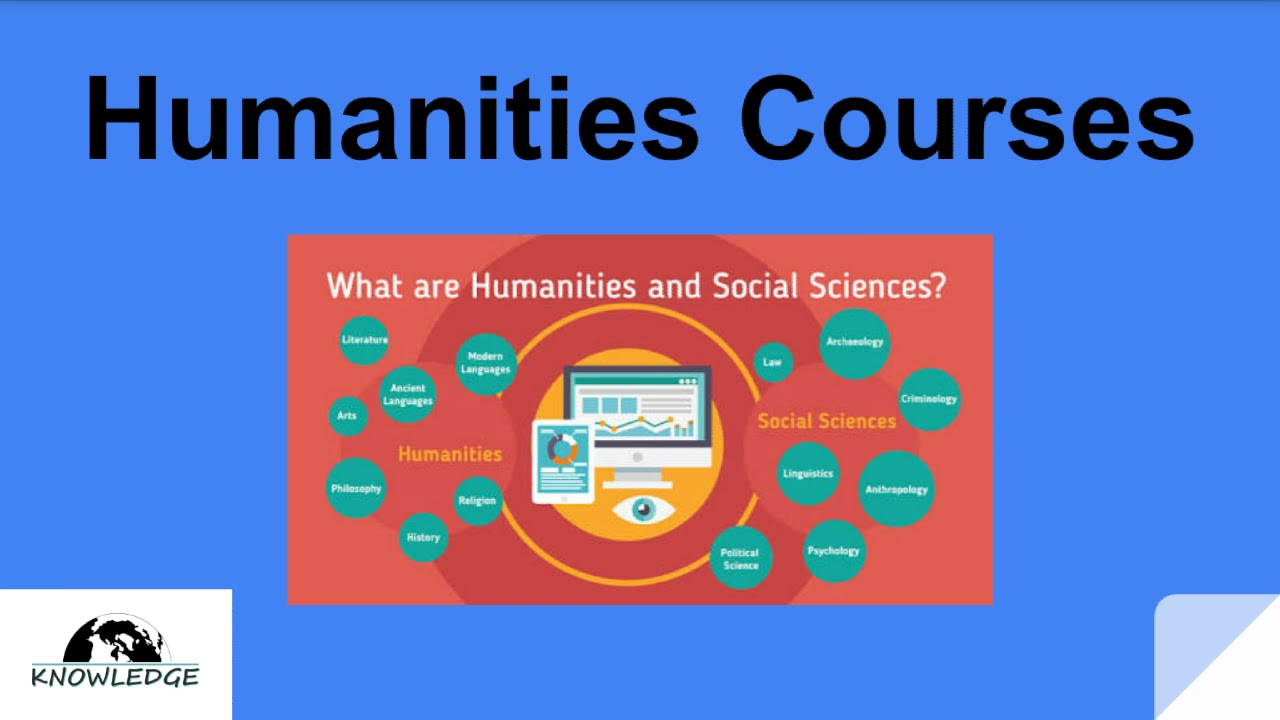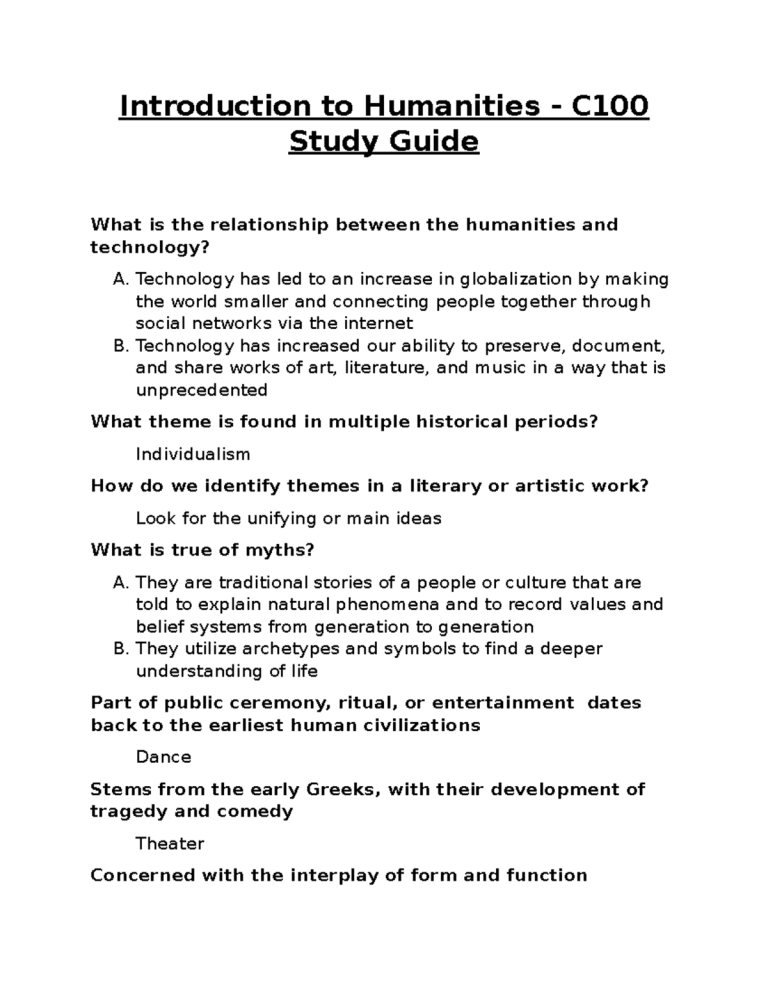Introductory humanities courses play a pivotal role in ushering first-year students into the rich realms of arts and humanities education. At institutions like Harvard, these courses are designed not just to impart knowledge, but to actively engage students and inspire a deeper appreciation for human culture. By addressing the decline in humanities enrollment, innovative programs aim to rekindle interest and showcase the intrinsic value of these disciplines. With a diverse range of topics—from literature and philosophy to film and music—introductory courses captivate students and encourage them to explore their passions. As education evolves, the approach to teaching the humanities must also adapt, ensuring that students see both the relevance and excitement in their studies across the arts.
The foundational courses in the humanities serve as gateways for new learners seeking to explore critical questions about society, identity, and creativity. By examining pivotal texts and artistic expressions, students are provided with the context necessary to understand the human experience on a broader scale. These initial classes, with their engaging content and thoughtful discussions, are not merely introductions but catalysts for personal and intellectual growth. Furthermore, they reflect a commitment to fostering a vibrant academic community where every participant can find meaning and connection in the study of the diverse narratives that shape our world. Emphasizing interdisciplinary approaches that merge literature, philosophy, and the visual arts, these entry-level courses inspire students to challenge their perspectives and ignite a lifelong passion for the humanities.
Engaging Students in Introductory Humanities Courses
The introduction of nine new humanities courses aims to engage first-year students deeply in the arts and humanities at Harvard. With declining enrollment rates in these fields becoming a critical issue, Dean Sean Kelly has prioritized crafting courses that resonate with students’ experiences and interests. Students, often uncertain about their paths, are looking for subjects that not only educate but also inspire and connect with their personal values. These introductory courses aspire to do just that, drawing from exciting themes like technology, health, literature, and social issues to capture their attention.
Courses such as ‘Humanity, Technology, and Creation’ and ‘Migration and Border Crossing in Film and Photography’ reflect evolving interests among students who increasingly seek relevance in their education. By focusing on contemporary issues, these classes promise to hook students from the start, encouraging them to explore critical questions about culture and identity from the lens of the humanities. Engaging students through relatable and thought-provoking content is essential for reversing the trend of enrollment declines in this vital area of study.
The Importance of Arts and Humanities in Higher Education
The 21st-century student benefits immensely from a robust understanding of arts and humanities, which are fundamental to our understanding of human culture. Areas such as literature, music, and philosophy provide valuable insights into societal structures, ethical considerations, and the richness of human experience. As Dean Kelly emphasizes, the goal is not merely to study these subjects through a lens of utility but to appreciate their intrinsic value, encouraging students to ask deeper existential questions. This approach aims to build a generation that is not only educated but also empathetic and intellectually curious.
Furthermore, introductory courses in arts and humanities are designed with versatility in mind, preparing students for various career paths. While traditional metrics of success in higher education often emphasize quantifiable outcomes, the nuanced skills gained from studying human culture—critical thinking, creativity, and emotional intelligence—equip students to adapt to the complexities of the modern workforce. In an era where interdisciplinary knowledge is more relevant than ever, the arts and humanities remain a cornerstone of a well-rounded education.
Diverse Curriculum: A Fresh Approach to Humanities
The newly launched humanities courses at Harvard reflect a shift towards inclusivity and diversity in higher education. By embracing a variety of perspectives—from health humanities to literature and technology—the curriculum seeks to engage a broader range of student interests and backgrounds. This diverse curriculum not only enhances the educational experience but also fosters critical discourse about culture, identity, and the human condition. Students will explore a wide array of voices and stories, challenging them to critically analyze and interpret the world around them.
Moreover, by involving students in conversations that traverse disciplines, these courses aim to dismiss the outdated notion of a monolithic literary canon. Instead, they embrace a plurality of texts, themes, and methodologies, mirroring the complexity of contemporary societal issues. This shift not only attracts students who may have previously felt marginalized in traditional humanities courses but also enriches the classroom experience by allowing for richer discussions and collaborative learning.
Redefining Greatness: Canon Wars and Modern Teaching
The ongoing debates surrounding the concept of ‘greatness’ in the arts and humanities—often termed the ‘Canon Wars’—have impacted the way introductory courses are designed today. Dean Kelly reflects on how such historical discussions have led to a hesitancy in curating definitive lists of essential texts. The challenge remains: how do educators present these texts in a way that excites and resonates with today’s students? The focus must shift to why these works matter, challenging students to find personal relevance and meaning within them.
As educators redefine what constitutes a ‘great work,’ it becomes crucial to engage students not just in tradition but in critical dialogue around these texts. This brings forth the idea that literature, philosophy, and the arts are not only subjects to be studied but are instruments for exploration and understanding of the human experience. By highlighting contemporary debates in a historical context, students are encouraged to cultivate a diverse understanding of literary and artistic value that transcends mere academic examination.
Creating a Community of Learners in Humanities Education
Dean Kelly’s initiative to enhance humanities courses reflects a commitment to creating an inviting community of learners. The introductory courses are designed not only to meet academic needs but to cultivate social connections and collaboration among students. The co-teaching approach—such as the partnership between Laura van den Berg and Neel Mukherjee—aims to merge critical analysis with creative expression, showing students the interconnectivity of ideas and the importance of dialogue in the humanities.
Building a community where students feel valued and heard is essential for positive academic engagement. Discussions around personal experiences or societal issues in humanities courses can foster empathy, an exploration of identity, and a collective investment in shared learning. By prioritizing this community aspect, the courses not only serve to increase enrollment but also enhance the overall educational atmosphere, thereby enriching students’ university experience.
The Role of Faculty in Inspiring Future Humanities Scholars
The faculty involved in teaching introductory humanities courses play a pivotal role in revitalizing interest in the arts and humanities among first-year students. With professors who are passionately dedicated to their disciplines, students are more likely to experience the intrinsic value of these subjects. By presenting both classic and contemporary works through stimulating pedagogical methods, these educators engage students not just as learners, but as potential contributors to the fields of arts and humanities.
Professors like Karen Thornber, who teach courses on medical humanities and other pressing modern topics, exemplify how faculty can bridge academic inquiry with real-world applications. By fostering passion and curiosity, faculty can inspire students to explore the humanities beyond their introductory courses, possibly guiding them toward concentrations that intertwine with their career aspirations. This engagement is crucial for nurturing future scholars and practitioners who will carry the mantle of the humanities into broader social contexts.
Building Critical Thinking through the Humanities
Critical thinking forms the backbone of a well-rounded education and is especially prominent in humanities disciplines. The new humanities courses at Harvard emphasize critical analysis of texts and concepts, allowing students to engage with complex ideas and question underlying assumptions. By grappling with challenging philosophical questions and analyzing diverse literary works, students develop the skills necessary to think critically across various contexts, a competency essential in any career.
The emphasis on critical thinking within these courses is further strengthened by diverse teaching methodologies that encourage open discussion and debate. Instructors aim to create an environment where students feel free to voice their opinions, challenge notions, and learn from one another. This collaborative approach not only sharpens analytical skills but also builds confidence in students as they learn to articulate their thoughts clearly and persuasively, vital skills that extend far beyond the classroom.
Future of Humanities: Envisioning an Inclusive Academic Landscape
The future of humanities education seems to hinge on inclusivity and relevance. By embracing a range of voices and perspectives, the new introductory humanities courses envision an academic landscape that reflects the diversity of human experience. This approach aims to attract and retain students who may previously feel disconnected from traditional offerings, fostering a community that values diverse cultural narratives and encourages engagement with pressing contemporary issues.
In promoting inclusivity, the humanities can reclaim their vital role in higher education, reminding students of the importance of understanding the arts and culture in shaping society. The innovative course offerings at Harvard are part of a broader initiative to redefine how humanities are perceived, not simply as obsolete disciplines but as essential areas of study that enrich personal growth, critical inquiry, and societal development. Moving forward, it is essential that such programs continue to adapt and evolve, ensuring that they remain relevant to future generations of scholars.
Frequently Asked Questions
What are introductory humanities courses and why are they important?
Introductory humanities courses are foundational classes that explore a range of topics in the arts and humanities, such as literature, philosophy, and cultural studies. They are important because they help students develop critical thinking and analytical skills, engaging them in essential questions about human experiences and cultural contexts. By participating in these courses, first-year students can gain a deeper understanding of their own perspectives and the world around them.
How can engaging students in introductory humanities courses impact their academic journey?
Engaging students in introductory humanities courses can significantly impact their academic journey by fostering a love for the arts and humanities. These courses often expose students to diverse perspectives and stimulate a passion for further exploration in these fields, which is crucial for increasing humanities enrollment. When students find enjoyment and relevance in these subjects early on, they are more likely to pursue advanced studies and careers related to the humanities.
What strategies are being implemented to increase enrollment in arts and humanities courses?
To increase enrollment in arts and humanities courses, initiatives such as introducing new, engaging introductory courses are being implemented. By focusing on contemporary themes and relatable content, these courses aim to capture students’ interests right from the start. For example, Harvard’s recent initiative offers innovative courses that address critical cultural issues, making the arts and humanities more appealing and relevant to today’s students.
What are some examples of new courses in introductory humanities at Harvard?
Some examples of new courses in introductory humanities at Harvard include ‘Introduction to the Medical and Health Humanities,’ ‘Bob Dylan: The Classic,’ and ‘Migration and Border Crossing in Film and Photography.’ These courses aim to engage students by connecting the curriculum to pressing cultural topics and personal experiences, thereby enhancing their understanding and appreciation of the arts and humanities.
How do introductory humanities courses prepare students for the future?
Introductory humanities courses prepare students for the future by equipping them with critical thinking, communication, and analytical skills that are valuable in any career. These courses encourage students to grapple with complex ideas and societal issues, fostering intellectual curiosity and resilience. Such skills are essential not only for academic success but also for informed citizenship and personal development.
What is the role of storytelling in introductory humanities courses?
Storytelling plays a crucial role in introductory humanities courses as it helps students connect with the material on a personal level. By exploring various narratives and literary techniques, students enhance their understanding of cultural contexts and human experiences. This engagement with storytelling enriches their analytical abilities and encourages them to reflect on their own stories, shaping their identities and perspectives.
How do introductory arts courses differ from traditional humanities courses?
Introductory arts courses often focus on practical engagement with creative practices such as visual arts, music, or performing arts, whereas traditional humanities courses may emphasize critical analysis of texts and theoretical frameworks. The former allows students to explore creativity and expression, while the latter encourages deep intellectual inquiry. However, both types of courses aim to foster a holistic understanding of human culture and creativity.
What is the intrinsic value of studying humanities and arts in higher education?
The intrinsic value of studying humanities and arts lies in their ability to deepen our understanding of human culture, emotion, and ethical considerations. These fields encourage students to reflect on fundamental questions about existence, society, and relationships. Engaging with great literature, thought-provoking philosophy, and powerful art challenges students to think critically and empathetically, enriching their personal and academic lives.
How can introductory humanities courses enhance interdisciplinary learning?
Introductory humanities courses enhance interdisciplinary learning by integrating concepts from various fields such as history, philosophy, literature, and the arts. This approach encourages students to make connections between different areas of study, fostering a comprehensive understanding of complex issues. By exploring interdisciplinary themes, students can cultivate a more nuanced perspective on their other academic pursuits and real-world challenges.
What are the benefits of team-teaching in introductory humanities courses?
Team-teaching in introductory humanities courses offers the benefit of diverse perspectives and expertise, enriching the educational experience for students. It allows for the integration of different disciplinary approaches, enabling students to see the connections between creative writing and critical reading, for example. This collaborative teaching strategy fosters a more dynamic and interactive classroom environment, engaging students and enhancing their learning outcomes.
| Key Points |
|---|
| New Initiative in Humanities Courses |
| Engagement Focus |
| Diverse Course Offerings |
| Emphasis on Intrinsic Value |
| Goal: Counter Declining Enrollment |
Summary
Introductory humanities courses serve as a vital foundation for students, offering essential insights into various aspects of human culture. The recent initiative by the Dean of Arts and Humanities aims not only to enhance student engagement but also to revive interest by presenting diverse, meaningful subjects in a captivating manner. This approach promises to not only attract more first-year students but also nurture a deeper understanding of the humanities’ intrinsic value, ultimately enriching their academic journey and personal growth.




